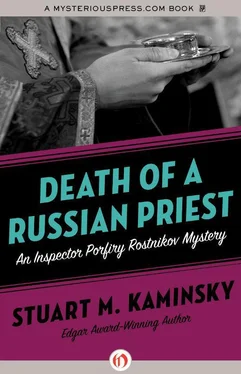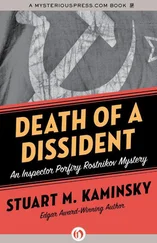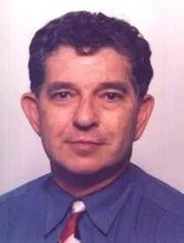Stuart Kaminsky - Death Of A Russian Priest
Здесь есть возможность читать онлайн «Stuart Kaminsky - Death Of A Russian Priest» весь текст электронной книги совершенно бесплатно (целиком полную версию без сокращений). В некоторых случаях можно слушать аудио, скачать через торрент в формате fb2 и присутствует краткое содержание. Год выпуска: 2012, Жанр: Полицейский детектив, на английском языке. Описание произведения, (предисловие) а так же отзывы посетителей доступны на портале библиотеки ЛибКат.
- Название:Death Of A Russian Priest
- Автор:
- Жанр:
- Год:2012
- ISBN:нет данных
- Рейтинг книги:3 / 5. Голосов: 1
-
Избранное:Добавить в избранное
- Отзывы:
-
Ваша оценка:
- 60
- 1
- 2
- 3
- 4
- 5
Death Of A Russian Priest: краткое содержание, описание и аннотация
Предлагаем к чтению аннотацию, описание, краткое содержание или предисловие (зависит от того, что написал сам автор книги «Death Of A Russian Priest»). Если вы не нашли необходимую информацию о книге — напишите в комментариях, мы постараемся отыскать её.
Death Of A Russian Priest — читать онлайн бесплатно полную книгу (весь текст) целиком
Ниже представлен текст книги, разбитый по страницам. Система сохранения места последней прочитанной страницы, позволяет с удобством читать онлайн бесплатно книгу «Death Of A Russian Priest», без необходимости каждый раз заново искать на чём Вы остановились. Поставьте закладку, и сможете в любой момент перейти на страницу, на которой закончили чтение.
Интервал:
Закладка:
“Go,” Galina said gently. “Now.”
Ludmilla sighed deeply, brushed back her short hair, and ran out the door, slamming it behind her. They could hear the sound of her feet running on broken glass, a door opening, and then the mixed cheers and boos of the crowd.
“I don’t even know what kind of gun this is,” Galina said, sitting back on the stool.
“May I?” asked Rostnikov, putting his right hand up to his jacket.
Galina nodded.
Porfiry Petrovich reached into the inner pocket of his jacket and extracted a pair of glasses, which he placed on his nose. He looked at Galina and the weapon in her hand. “A Femara, Hungarian pistol,” he said. “Probably a 7.65mm Hege. Possibly a Walam model. Look at the handle.”
She loosed her grip slightly and looked down.
“A Pegasus in a circle?” he asked.
“Pega …?”
“Flying horse.”
She nodded.
“The Hege,” he said, putting the glasses away carefully.
“I thought you didn’t like guns,” she said, lifting her arm to aim the weapon at him.
“It is, in my work, a good idea to know weapons. One is not required to like what one may be required to know.”
“I think,” she said, “it would be best if I shot myself.” She raised the weapon and pointed it to her head.
“I have a son,” Rostnikov said. “His name is Iosef.”
“I had a daughter,” said Galina. “We were told not to have more than one child. We all listened except the Ubekistanis. Arabs. They were right. We were wrong.”
“Your granddaughters,” he said.
“I am not young and this gun is heavy.”
“It makes an unpleasant hole,” he said, shifting his weight slightly. “A painful hole. I think you might not be in jail long, if at all, Galina Panishkoya. Have you ever committed a crime?”
“I was born. I had a daughter. I’m sorry, I can hold this gun no-”
“You shall see your grandchildren,” he said. “You shall talk to them, prepare them. Where are they now?”
“Home, waiting for me, hungry,” she said.
Rostnikov said nothing. He imagined two frightened little girls waiting all day. He looked into the deep brown eyes of the woman across the room and knew she was thinking the same or something very like it.
The gun came down slowly.
“You promise?” she asked.
“I promise,” he said.
“All I wanted was a small bread,” Galina said, taking a step toward the policeman and holding out the weapon to him. “I had the money to pay for it.”
Rostnikov took the gun, placed it in his pocket, and moved to the woman’s side to take her arm and keep her from collapsing.
The central police headquarters known simply as Petrovka stands at 38 Petrovka Street. It is, to those who see it for the first time, a surprisingly pleasant pair of white L-shaped buildings. Behind the black-and-white iron gates of Petrovka is a garden. In the spring the red flowers that bloom there recall the summer palaces of the long-extinct nobility and the recently extinct Politburo members.
Entrance to Petrovka is through a narrow gate where each entrant must show his identification or invitation. The line moves slowly now because the guards who knew everyone by sight have been replaced, and many of the people who entered daily, some of them for decades, have themselves been told to seek other employment.
Twenty minutes after he had left Galina Panishkoya with the policeman named Tiomkin and ordered him to take her to her apartment to get her grandchildren, Porfiry Petrovich was waiting patiently outside Petrovka behind an assistant procurator named Lavertnikov.
“Madness,” muttered Lavertnikov, who wore a heavy coat and a hat with earflaps that made him look like a small bespectacled boy.
Rostnikov nodded and grunted without looking up from the particularly grisly passage he was reading in his American detective paperback, an Ed McBain titled Widows, which he had read only twice before. His fingers were cold, and every few moments he shifted the book to the other hand and plunged the cold one into his pocket.
The assistant procurator’s observation had seemed a reasonable one to Rostnikov in spite of its lack of a clear context.
The line was moving slowly.
Rostnikov closed the book and placed it gently in the wide pocket of his coat. “How well do you remember the house in which you lived as a boy?” he asked.
The assistant procurator adjusted his spectacles and looked at Rostnikov. “I … we lived in an apartment,” he answered, clutching his brown briefcase protectively to his side.
Rostnikov nodded. “What good is the past if we cannot remember it?” he said. “A woman named Galina Panishkoya reminded me of that earlier.”
“Galina …?”
“We remember only the shared past we are taught,” Rostnikov went on, “the history of czars and commissars, premiers, generals, scientists, and presidents. We can be reasonably sure that at some point in our lives even that will be revised.”
They had moved another few paces closer to the guard window. The assistant procurator was looking decidedly uncomfortable. “History is …” he began, and then paused.
“… elusive,” concluded Rostnikov. “Nostalgia, the history of our own lives, is too often demeaned as trivia. And that demeans each of us.”
“Indeed,” agreed Lavertnikov as he turned to show his identification card.
“It’s not madness,” said Rostnikov. “It is chaos. And they are not quite the same thing.”
The guard waved the assistant procurator in and turned to Rostnikov, who held up his photo identification card. The young man in uniform looked at it, then at Rostnikov, then back at the card before nodding him on.
Beyond the gate Petrovka 38 is modern, utilitarian, and very busy. Police officers wearing the gray uniforms with red braid and investigators of the MVD, the Ministry of Internal Affairs, in their blue suits stream in and out of the building throughout the day and night. All are wondering if they will be uniformed at the same hour next week, which leads to a sense of irritability spoken of only behind closed doors and only among friends.
Just inside the inner doors at the top of the wide steps in each wing of Petrovka 38 stand uniformed officers armed with automatic weapons. Where there were two, there are now six. They have been told to watch not for disgruntled Arabs or separatists as in the past, but for old-guard Communists who might go mad like those postal clerks in America who seem to run amok every month or two because they’ve lost their routes, jobs, or bonuses.
Rostnikov moved up the steps past the armed guards and into the overwhelming warmth of the building. Since the fall of the union someone had decided that Petrovka needed more heat. It was probably impossible to determine who made this decision, but the building had become soporific.
On the top floor of Petrovka, in the right tower facing the narrow street, is the office of the director of special projects, Colonel Aleksandr Snitkonoy. On this morning three men sat at the oak conference table in the office of Colonel Snitkonoy, their backs to the door, as the colonel paced in front of them and spoke in the commanding deep voice that had made him a favorite speaker at factory openings and funerals of military and party leaders.
The three men watched the colonel, known throughout the MVD as the Gray Wolfhound. The colonel was tall and slender, with distinguished-looking gray hair at his temples. He wore a brown uniform, perfectly pressed. His many medals and ribbons of honor were neatly aligned on his chest. One of the ribbons commemorated his legendary speech in Prague in 1968 when he turned a rabble crowd of irate young Czechs with promises that were never delivered upon. The speech had been spoken in perfect Czech. The colonel’s latest ribbon had come when his men had thwarted an assassination attempt on President Gorbachev.
Читать дальшеИнтервал:
Закладка:
Похожие книги на «Death Of A Russian Priest»
Представляем Вашему вниманию похожие книги на «Death Of A Russian Priest» списком для выбора. Мы отобрали схожую по названию и смыслу литературу в надежде предоставить читателям больше вариантов отыскать новые, интересные, ещё непрочитанные произведения.
Обсуждение, отзывы о книге «Death Of A Russian Priest» и просто собственные мнения читателей. Оставьте ваши комментарии, напишите, что Вы думаете о произведении, его смысле или главных героях. Укажите что конкретно понравилось, а что нет, и почему Вы так считаете.












